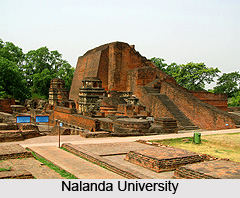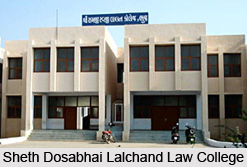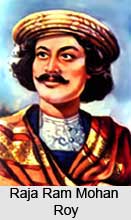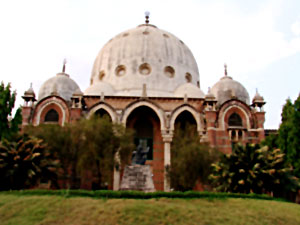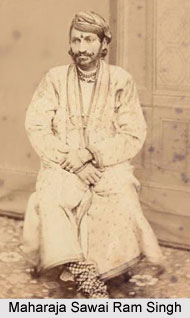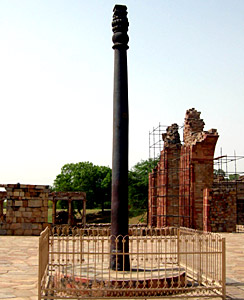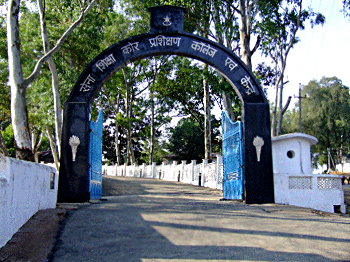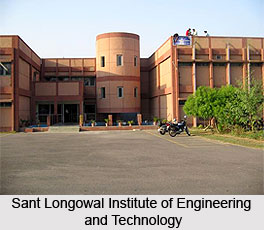 SLIET entrance test examination is a separate test organized by the Sant Longowal Institute of Engineering and Technology (SLIET) of Punjab. It is an autonomous body and deemed-to-be-university. This national level institute was established by the Ministry Of Human Resource and Development (MHRD) and fully financed by the Government of India. This institute is really popular and it offers a completely unique pattern of education in different engineering and technological branches. Sant Longowal Institute of Engineering and Technology imparts its own certificates and diploma programmes, which are approved and recognized by the AICTE, New Delhi. The undergraduate and postgraduate degree courses of this institute are affiliated to Punjab Technical University (PTU), Jalandhar. This institute has also started Ph.D. and doctoral programmes in collaboration with Punjab Technical University and other renowned institutes of the state.
SLIET entrance test examination is a separate test organized by the Sant Longowal Institute of Engineering and Technology (SLIET) of Punjab. It is an autonomous body and deemed-to-be-university. This national level institute was established by the Ministry Of Human Resource and Development (MHRD) and fully financed by the Government of India. This institute is really popular and it offers a completely unique pattern of education in different engineering and technological branches. Sant Longowal Institute of Engineering and Technology imparts its own certificates and diploma programmes, which are approved and recognized by the AICTE, New Delhi. The undergraduate and postgraduate degree courses of this institute are affiliated to Punjab Technical University (PTU), Jalandhar. This institute has also started Ph.D. and doctoral programmes in collaboration with Punjab Technical University and other renowned institutes of the state.
For getting admissions to all the courses in Sant Longowal Institute of Engineering and Technology, students need to clear the SLIET Entrance Test (SET). SET is conducted at the national level. The entrance exams organized for admissions to certificate, diploma, degree and the PG programme are known as SLIET Entrance Test-I (SET-I), SLIET Entrance Test-II (SET-II), SLIET Entrance Test-III (SET-III) and SLIET Entrance Test-VI (SET-VI), respectively. SET is usually conducted in the month of June every year.
Application Forms
Students can obtain the application form for the entrance test and the admissions Brochure comprising information about the syllabi of the entrance test for the various programmes from the institute on payment of certain fixed amount at the Institute`s counter. Students can also send a Bank Demand Draft in favour of the Director, SLIET. They need to send the completed application form along with the examination fee and essential documents before the last scheduled date of the submission.
Eligibility Criteria for SET Exam
Candidates seeking admission into the certificate programmes offered by the institute should have cleared the matriculation examination from a State Secondary Education Board/CBSE/ISCE or equivalent. For the diploma programmes, he/she must be a 10+2 pass students with Physics, Chemistry and Maths as compulsory subjects from a recognized Board/University or equivalent. For admission in the B. Tech degree programmes, candidates must be either diploma holders from SLIET or from other Polytechnics affiliated with any State Board of Technical Education. For the M. Tech/MBA programmes, minimum eligibility criterion is a bachelor degree certificate in Engineering/Technology in the concerned or equivalent. Aspirants who are appearing in the qualifying examination are also eligible to apply.
Courses Offered
Sant Longowal Institute of Engineering and Technology (SLIET), Punjab offers modular pattern of education in several areas of Engineering and Technology. It offers four types of course programmes and these are -
1. Certificate Programmes:
• Air Conditioning and Refrigeration (CAC)
•Auto and Farm Machinery (CAF)
• Computer Applications
• Foundry & Forging (CFF)
• Maintenance of Television (CTV)
• Maintenance of Electrical Equipments(CMEE)
• Paper and Printing Technology
• Servicing and Maintenance of Electronics Instruments (CSME)
• Servicing and Maintenance of Medical Instruments (CSMM)
• Tool and Die Technology(CTD)
• Welding Technology (CWG)
2. Diploma Programmes:
• Chemical Technology (DCT)
• Computer Science & Application (DCA)
• Computer Science & Engineering (DCE)
• Food Technology (DFP)
• Foundry Technology
• Electronics & Communication Engineering (DEC)
• Instrumentation Engineering (DIN)
• Industrial & Production Engineering (DIP)
• Maintenance & Plant Engineering (DMP)
• Welding Technology
3. Degree Programmes:
• Chemical Technology
• Food Technology (GFT)
• Computer Science & Engineering (GCS)
• Information Technology (GIT)
• Electronics & Communication Engineering (GEC)
• Instrumentation Engineering (GIN)
• Mechanical Engineering
4. Post Graduate Programmes:
• M. Tech. in Manufacturing Systems Engineering
• M. Tech. in Food Engineering & Technology
• M. Tech. in Instrumentation and Control Engineering
• M. Tech. in Polymer Technology
Pattern of Examination
SLIET examination is usually organized in two parts and each of two hours duration. It comprises Paper-I, which includes English, General Knowledge, Mental Aptitude, Mathematics, Physics and Chemistry. And there is Paper-II, which includes Basics of Engineering. The questions are multiple choice types and each paper consists of 100 questions, one mark each. There is no system of negative marking. Question papers for will be given in English, Hindi and Punjabi languages.
Syllabus
Paper-I: English, General Knowledge and Mental Aptitude
• General Science
• Current events of National and International importance
• History of India
• Indian Politics and Economy
• Indian National Movement and also General Mental ability
• Idioms/Phrases
• Mathematics: Algebra, Trigonometry, Coordinate Geometry, Calculus
• Chemistry: Atoms, molecules and chemical arithmetic, Chemical families- periodic properties, Atomic structure, bonding and moecular structure.
• Physics: Description of motion, Moment of inertia, Kinetic theory of gasses, Electromagnetic waves, atomic and nuclear physics.
Paper - II: Basics of engineering
• Computer science and engineering/information technology
• Electronics and communication engineering
• Electrical and instrumentation engineering
• Mechanical engineering
• Chemical engineering
• Food technology
Selection Process
Selection for admission is made entirely on the basis of the scores or merit determined in the SLIET Entrance Test organized for the Certificate, Diploma, Degree and M. Tech. degree programmes. The students who clear the entrance test are given a call letter for counselling.
SLIET Entrance Test (SET) is separately organized by the Sant Longowal Institute of Engineering and Technology (SLIET), Punjab, which was established by the Government of India. This entrance test is conducted for admissions in various levels of degree programmes of the institute.
